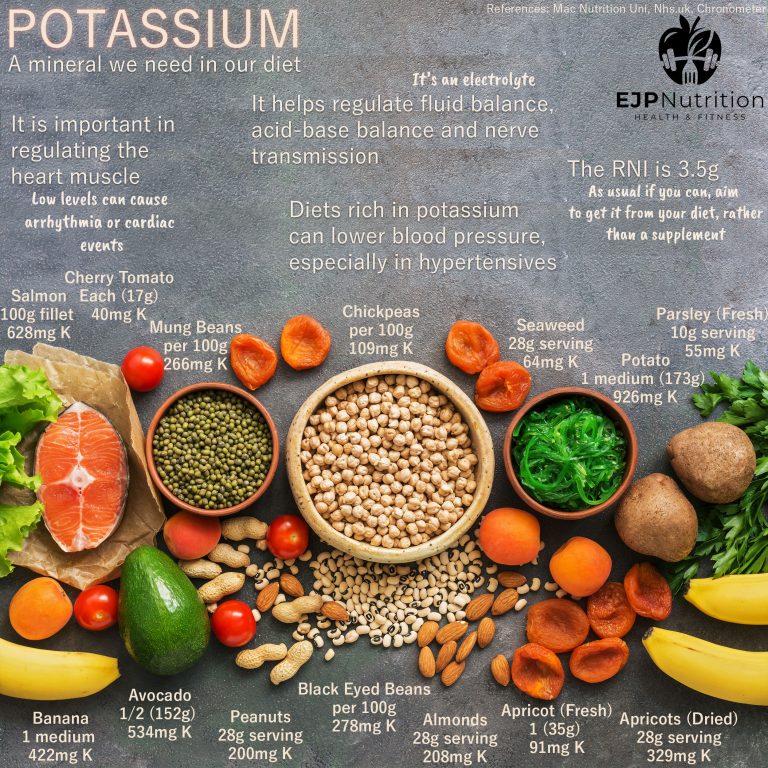Another day, another mineral. Potassium (K) is found in lots of the foods we eat, especially fruits & vegetables. The highest source is from potatoes. Potassium is one of the micronutrients required for optimal health. The UK RNI for adults is 3.5g per day.
Potassium is an electrolyte and it’s critical for the function of nerve & muscle cells (including the heart). It plays a role in fluid balance & acid-base balance. There is mixed research on whether it contributes to bone health too, potentially from how it influences calcium balance.
Deficient?
Low levels can result in hypokalaemia. As potassium is important in regulating the muscles in the heart this can lead to arrhythmia (irregular heartbeats), or in more severe circumstances cardiac arrest.
Research has looked at the link between cardiac events and eating disorders. Dehydration, vomiting, use of laxatives & diuretic intake (mostly seen in bulimia nervosa) can cause a deficiency in potassium, which increases the risk of a sudden cardiac event.
Hypertension is one of the big risk factors for CVD. Diets rich in potassium can lower blood pressure, especially in hypertensives. Studies have found an inverse association between higher potassium intakes & the risk of stroke.
One review on stroke risk concluded; These results confirm the appropriateness of worldwide recommendations for a population increased consumption of potassium-rich foods to prevent cardiovascular disease.
There is a link with the ratio of potassium and sodium in regulating blood pressure. For people with higher salt intakes, if they also eat lots of potassium-rich foods it can reduce the potential risk from high sodium raising BP. One study notes; improving the potassium:sodium intake ratio has a stronger advantage to heart health than either dietary constituent in isolation.
As with other micronutrients, it’s better to get them from you diet when possible. There are varying effects (and possible risks, so be aware of doses & consult your GP) if considering potassium supplements. Potassium is regulated by the kidneys. For people with kidney problems having higher levels could be an issue if they aren’t able to maintain homeostasis.
References: Mac Nutrition Uni, D’Elia et al 2018, Jáuregui-Garrido & Jáuregui-Lobera 2012, D’Elia et al 2014, Rust & Ekmekcioglu 2016, Aburto et al 2013
(Reposted from Instagram)


